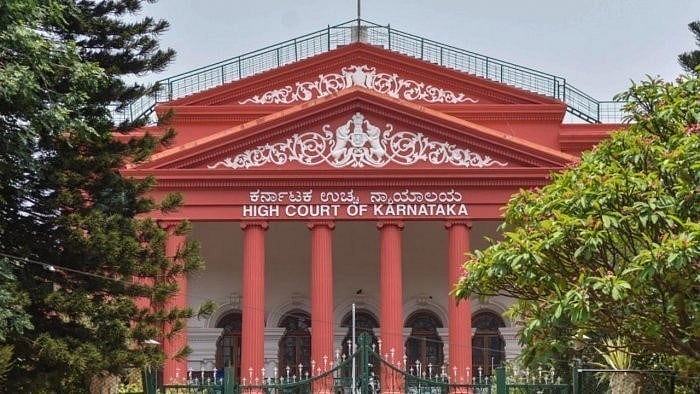
Karnataka High Court
Credit: DH File Photo
Bengaluru: The high court on Thursday posted X Corp’s petition for final hearing to April 24 with the consent of the parties that an interim order would not be necessary.
Solicitor General Tushar Mehta, appearing for the Centre, said any entity operating in India was bound by Indian law.
“The ultimate conclusion of the entire scheme of things is that the petitioner is an intermediary. It is like a notice board in a village. One can post some good quotations, someone else may post some abuse, and someone may post some defamatory material,” he said.
He requested the court to consider the matter for final hearing, saying, “As of now, nothing has happened. We can inform them (X) that this is illegal (certain posts). In the meanwhile, nothing will happen, and nothing can happen,” he said.
Earlier, senior advocate K G Raghavan, appearing for X Corp, said there was no intention of violating any law. But, the exemption granted by the statute under section 79(1), safe harbor, is taken away without following the safeguard under section 69A of Information Technology (IT) Act.
“The government is authorising every officer, it could be Station House Officer, tax officer, village accountant to issue orders under section 79(3)(b). There is a notification that says a tax recovery officer is empowered to issue a blocking order under 79(3)(b). Tomorrow it can be a tahsildar, the day after tomorrow it can be a clerk,” Raghavan said.
He said section 79(3)(b) cannot be read as a standalone provision, having regard to the enunciation of the law by the Apex Court in the Shreya Singhal case that section 79(3)(b) should be read in consonance with safeguards in section 69A.
“Under section 69A, the mechanism is different. The nodal officer has to write to the designated officer, and the designated officer then has to take the opinion of the committee. Thereafter, they have to follow the procedure, come back to the nodal officer. Then there is a provision for review. You cannot interplay between Sections 69A and 79(3)(b) as Section 79 (3) (b) gives unbridled power to decide what is unlawful irrespective of what is contained in Section 69A, independent of procedural safeguards in Section 69A is unchanged,” he said.
